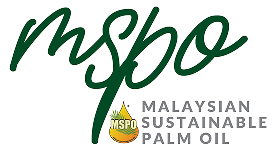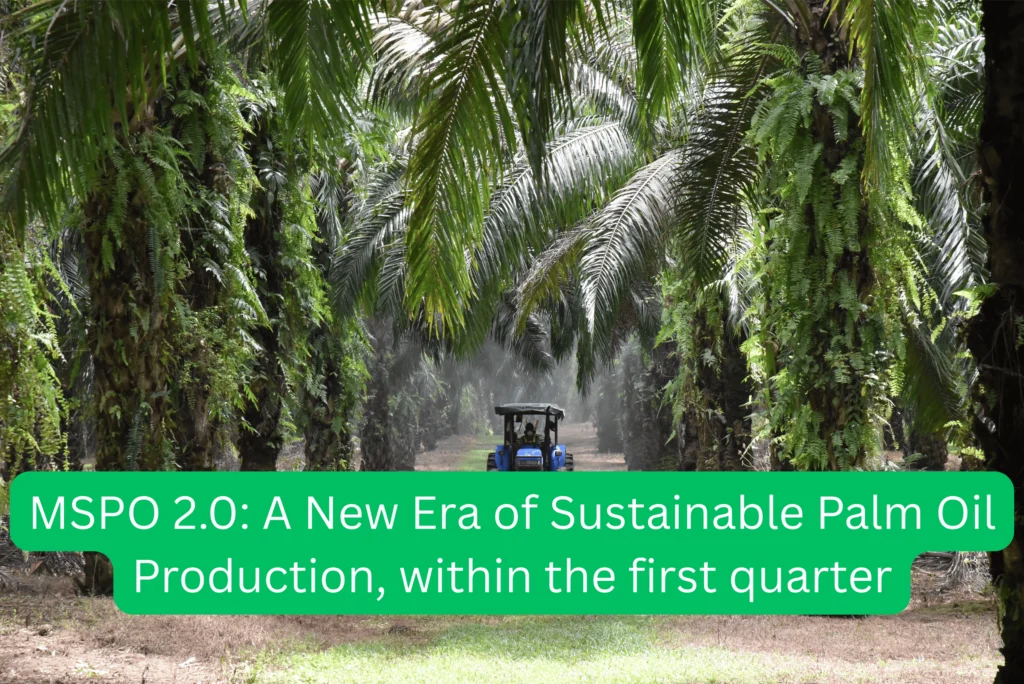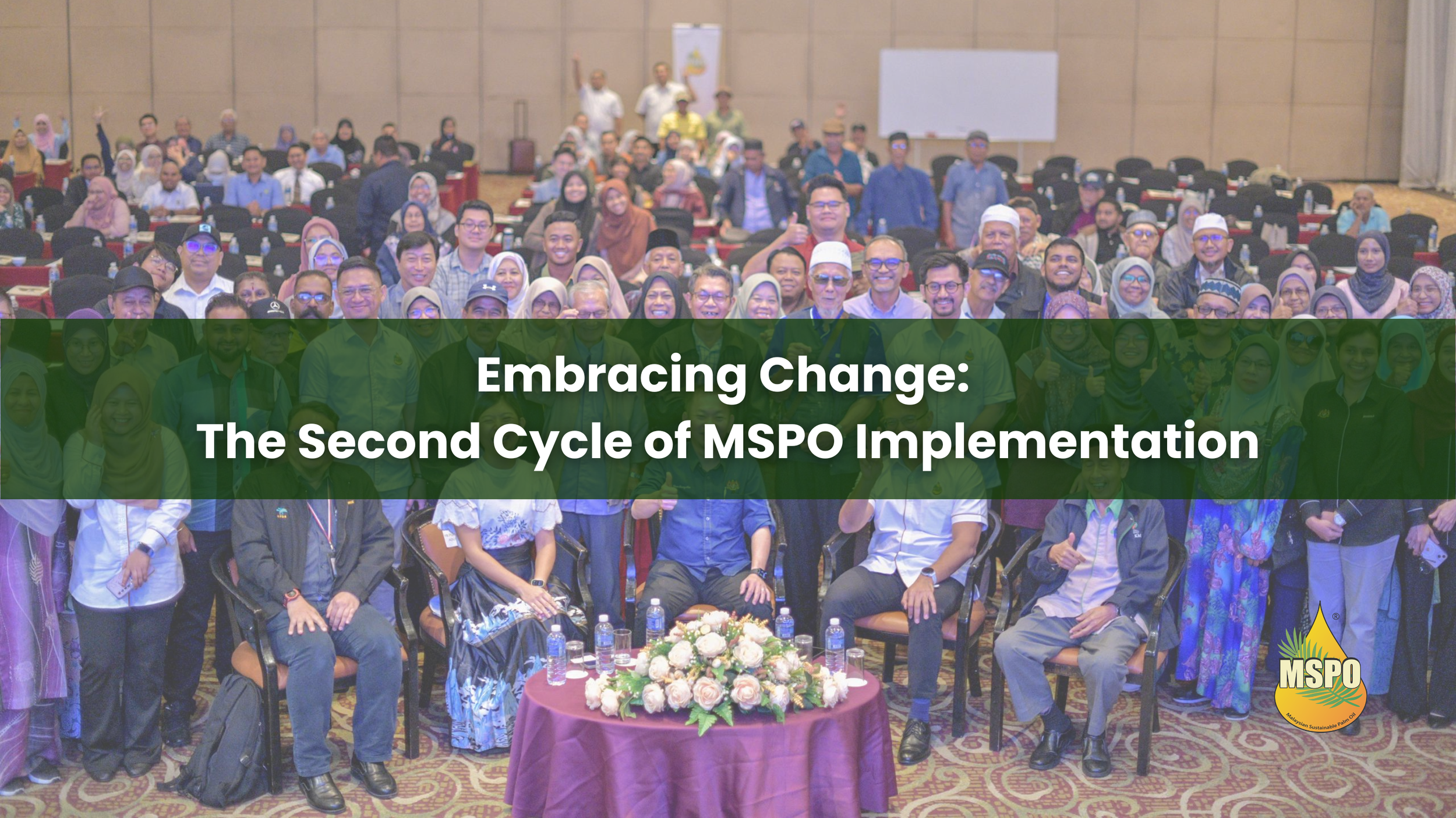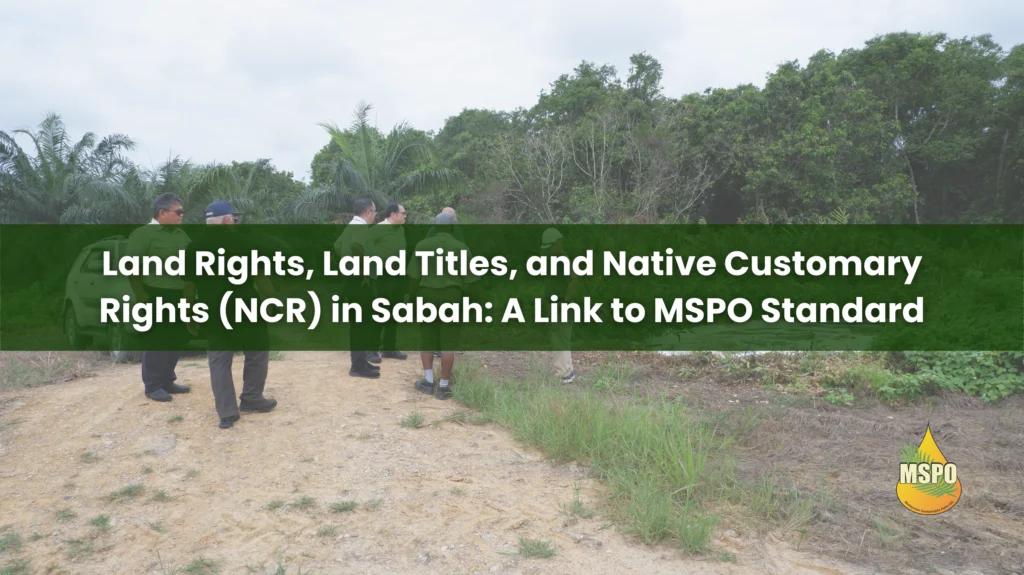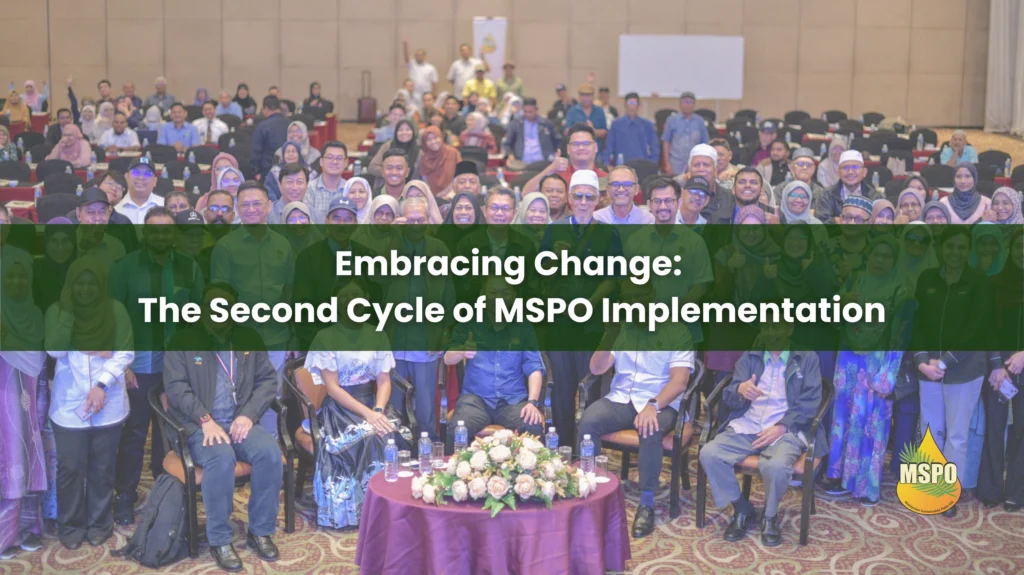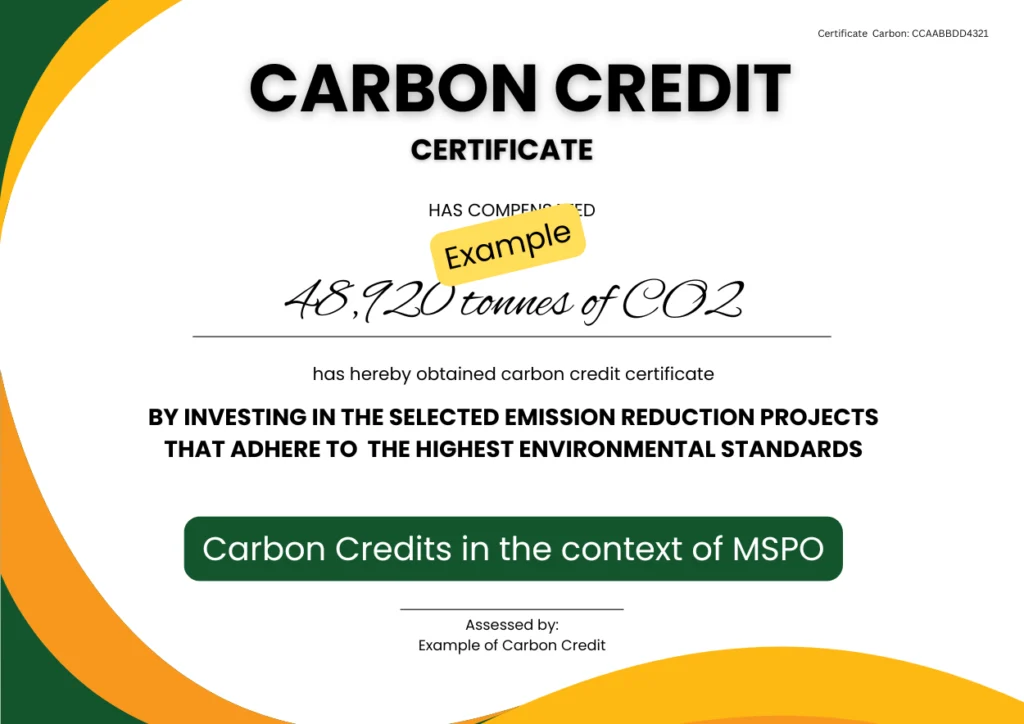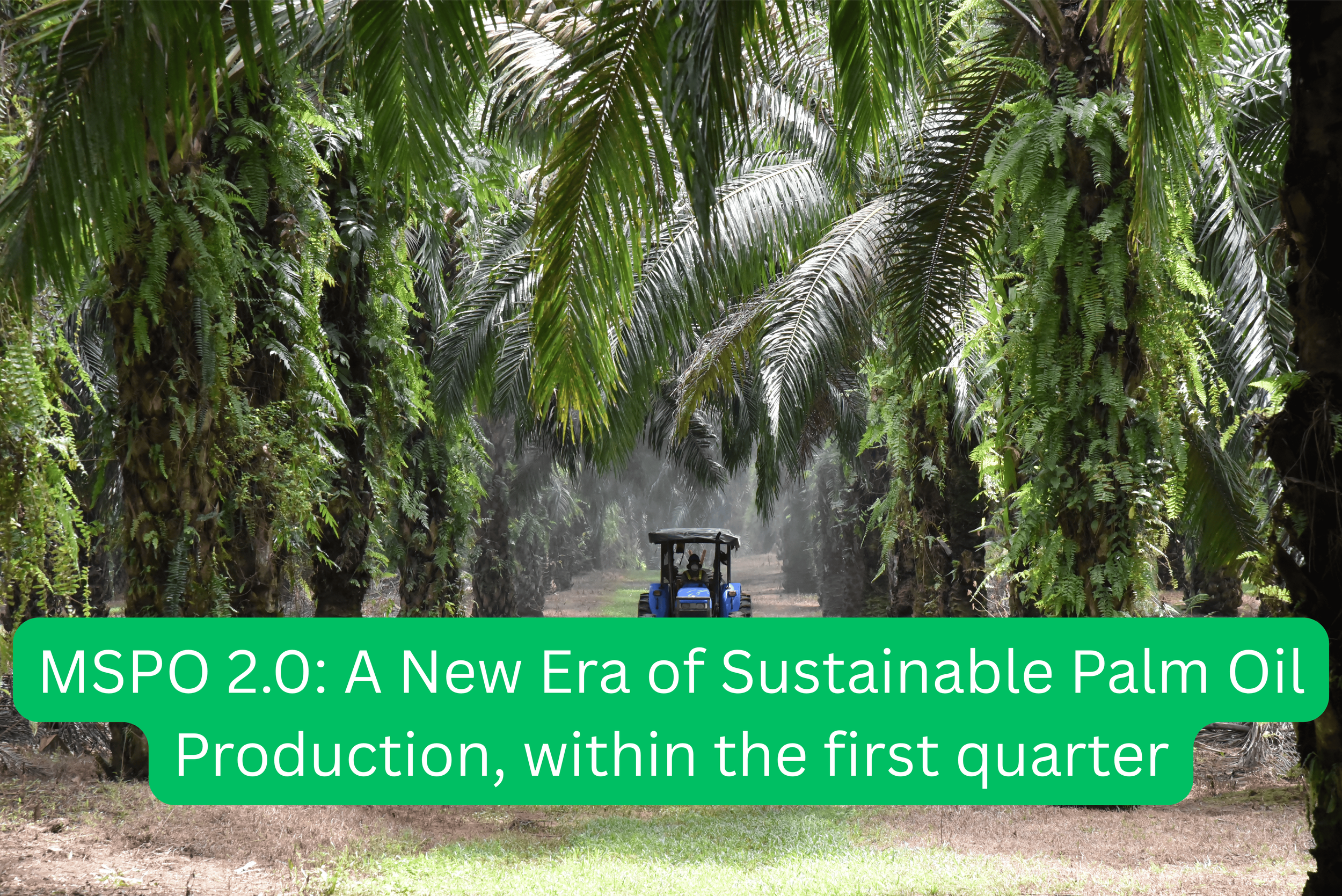
Since its implementation on 1st January 2025, the Malaysian Sustainable Palm Oil (MSPO) 2.0 standard has marked a significant milestone in the journey towards sustainable palm oil production. This updated standard, technically known as MS2530:2022, introduces stricter guidelines for sustainability, traceability, and ethical practices, aligning with global expectations for environmental sustainability, social responsibility, and governance practices (ESG).
Achievements So Far
MSPO 2.0 has already made notable strides, one of the key achievements is the comprehensive traceability mechanisms that ensure supply chain transparency. This is crucial in maintaining Malaysia’s leadership in responsibly managed palm oil. Additionally, the inclusion of mandatory dealer certification extends across all levels of the supply chain, further solidifying the integrity of the certification process.
Impending Inclusions: GHG and HCV
A significant enhancement in MSPO 2.0 is the impending inclusion of Greenhouse Gas (GHG) management and High Conservation Value (HCV) areas. The revised standards now incorporate specific guidelines for GHG emissions, aiming to mitigate the impacts of global warming by promoting efficient energy use and the adoption of renewable energy sources. The HCV concept has also been integrated, ensuring that areas of significant environmental, social, or cultural value are protected and managed sustainably.
Milestones for the Past Quarter
In the past quarter, MSPO 2.0 has achieved several key milestones. Notably, the certification has met the requirements set by the European Union Deforestation Regulation (EUDR), which mandates compliance with stringent criteria such as land legality, labour treatment, traceability, and no deforestation. This alignment with international regulations underscores the robustness of MSPO 2.0 and its commitment to global sustainability standards.
Collaborative Efforts with Stakeholders
The success of MSPO 2.0 is also attributed to the collaborative efforts with various stakeholders. The establishment of the MSPO Impact Alliance, a multi-stakeholder platform, is a testament to this collaborative spirit. This alliance aims to extend the value of certification by exploring innovative models such as green financing for certified producers, digitised traceability solutions, and deforestation monitoring tools. Through partnerships with non-governmental organisations, accreditation bodies, financiers, and multinational companies, MSPO is driving forward practical solutions that enhance the certification’s impact.
Local Stakeholder Engagement
MSPO has been actively engaging with local stakeholders to bolster the sustainability and global competitiveness of Malaysia’s palm oil industry. Efforts include collaborations with fast-moving consumer goods (FMCG) companies to boost the visibility of the MSPO certificate and more effectively engage industry stakeholders. Additionally, MSPO has committed to supporting good labour practices in line with MSPO 2.0 guidelines, ensuring that economic growth is achieved without compromising environmental integrity. The RM50 million aid from the 2025 Budget is expected to help smallholders meet the new requirements, further strengthening the industry’s sustainability.
International Stakeholder Engagement
On the international front, MSPO’s efforts are equally robust. The MSPO Impact Alliance is designed to explore and test innovative models that enhance the certification’s value. This includes green financing for certified producers, digitised traceability solutions, deforestation monitoring tools, and inclusive sourcing incentives for smallholders. By aligning with international sustainability benchmarks such as the EU Deforestation Regulation (EUDR) and the United Nations Sustainable Development Goals (UNSDGs), MSPO 2.0 ensures that Malaysian palm oil meets the expectations of environmentally conscious consumers and regulators worldwide. These efforts not only preserve existing market access but also strengthen Malaysia’s ability to expand into new markets, showcasing its commitment to sustainability and quality.
Conclusion
In conclusion, the implementation of MSPO 2.0 marks a significant step forward in sustainable palm oil production. With its enhanced standards and collaborative efforts, MSPO 2.0 is well-positioned to lead the industry towards a more sustainable and responsible future.
